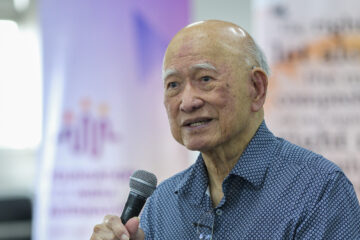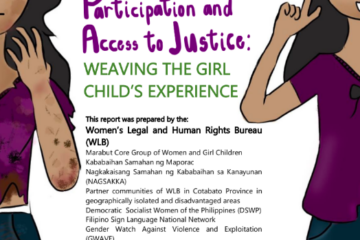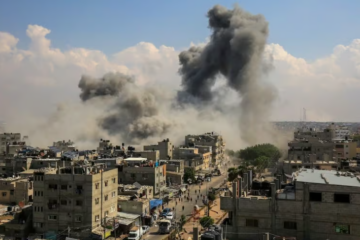Digital rights advocates demand the repeal of Section 6 of Bayanihan to Heal as One Act
We, the undersigned, express our grave concern over a provision of Republic Act No. 11469 or the Bayanihan To Heal As One Act that threatens our constitutional rights to free expression and access to information.
Haphazardly approved on 25 March 2020, the law penalizes “fake news” or disinformation under Section 6 (f), which reads:
“Individuals or groups creating, perpetrating, or spreading false information regarding the COVID-19 crisis on social media and other platforms, such information having no valid or beneficial effect on the population, and are clearly geared to promote chaos, panic, anarchy, fear, or confusion; and those participating in cyber incidents that make use or take advantage of the current crisis situation to prey on the public through scams, phishing, fraudulent emails, or other similar acts.”
While the provision appears to address the long-standing concern of journalists and activists over false information, which are typically circulated by paid trolling, it can also be used to curtail free speech, especially pieces of information that are critical of the government. Given its specific context and current form, Section 6 can be just as detrimental to democracy and human rights.
‘False information’ is not defined in any existing law, which means that its determination is left to the whims of law enforcers. The provision does not distinguish between those who passively ‘like’, share, comment and those who deliberately generate false content or actively discuss pieces of information that are deemed false.
The COVID-19 pandemic has a historical significance, being the most infectious threat that has hit multiple countries since Ebola and SARS. In this context, sharing complete and correct information can save many lives. But the pandemic also has global and local political ramifications, which require scrutiny and vigilance. It speaks of Philippine relations to China. It puts the knowledge, skills, strategies, and authenticity of public officials to the test. Like any disaster, it shakes up systems in ways that expose the good and the bad. Good practices including consultative planning, innovative thinking, and collaborative approaches continue to shine through amidst the double standards, nepotism, corruption, censorship and red tape imposed by many government offices and public officials.
In the last two weeks alone, we have seen abuses perpetrated by public officials. In Cebu, for example, the governor made a rapper promise before the public that he would never swear at and criticise the government’s response to Covid-19 in social media. During patrols, we have seen barangay officials and police apprehend curfew violators and penalise them by exposing them under the sun for hours, placing a child in a coffin and detaining teens in a dog cage. This, on top of the Duterte administration’s military rather than a public health approach to the pandemic.
But we have also seen the positive impact of free speech and organising over social media, particularly during the lockdown of Luzon and other places. Individuals and groups were able to pool together resources and support health and other essential workers. Public outrage exposed the unnecessary use of the limited COVID-19 testing kits by asymptomatic politicians and prevented the unfair sacking of health officials who opposed this VIP treatment. It also forced the Department of Health (DOH) to go back to the drawing board after it announced the measly allowance for volunteer health workers. It also exposed incidents of gender-based violence in certain checkpoints.
As courts are closed during the lockdown, it is unlikely that those accused of violating Section 6 will have access to legal remedies. This will further congest detention centers and eventually the dockets. More importantly, it will likely target the more critical voices, especially among those who have no political clout.
We urge the government to repeal Section 6, particularly its provision on false information and instead use its resources to generate, curate and disseminate critical pieces of information to the public and specific constituents towards addressing COVID-19 and supporting the needs of those most rendered vulnerable. We have seen creative examples of these which, when practiced more widely, can benefit more communities.
The COVID-19 pandemic is not only a crucial point to use information in saving lives. It is also a time to make people and systems work in favour of rights. Our democratic space is more crucial than ever. The damages wrought upon it by fake news prior to the pandemic can only be repaired by promoting critical discourses. Make it healthy by keeping it free.
Signatories:
Individuals:
Al Alegre
Alvin Gallardo
April Gomez Baldovino
Archill Niña F. Capistrano, BOT Chairperson of the Children’s Legal Bureau and Assistant Professor, UP Cebu
Dianne Olivan
Floyd Scott Tiogangco, writer and performance artist
Jhewoung Capatoy
Jason A. Baguia, writer and assistant professor, UP Cebu
Joan Dymphna Saniel-Amit, Executive Director of the Children’s Legal Bureau & Faculty Member of USC College of Law
John Nery, columnist, Philippine Daily Inquirer
Kathy del Socorro
Lito Averia
Marnie Tonson
Nica Dumlao
Niel Anthony Lajot
Noemi Lardizabal-Dado
Ryan Silverio
Shebana Alqaseer
Violeta de Guzman
Winthrop Yu
Weena Jade Gera, Vice Chancellor for Administration, UP Cebu
Yllang Montenegro, artist
Zenaida Ligan-Ashburn, Professor, UP Cebu
Organizations:
Active Vista
ASEAN SOGIE Caucus
Center for Migrant Advocacy, Phils. Inc.
Coalition Against Trafficking in Women – Asia Pacific
Dakila – Philippine Collective for Modern Heroism
Democracy.Net.PH
Digital Rights Coalition
Empowerment Through Art
Foundation for Media Alternatives
Human Rights Online – Philippines
In Defense of Human Rights and Dignity Movement
Internet Society – Philippines Chapter
Legal Network for Truthful Elections (LENTE)
LILAK (Purple Action for Indigenous Women’s Rights)
Philippine Alliance of Human Rights Advocates
Philippine Human Rights Information Center
Philippine Internet Freedom Alliance
Sentro ng mga Nagkakaisa at Progresibong Manggagawa
True Colors Coalition
Women’s Legal and Human Rights Bureau
![]()



0 Comments